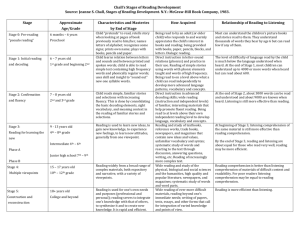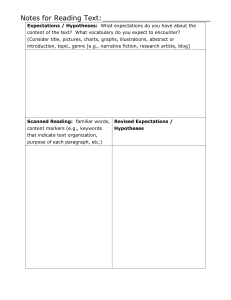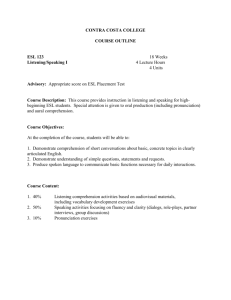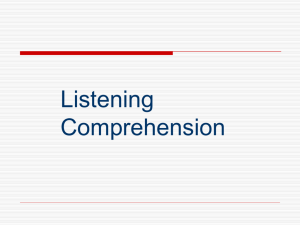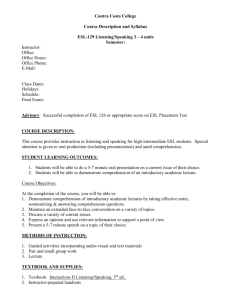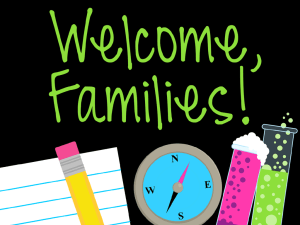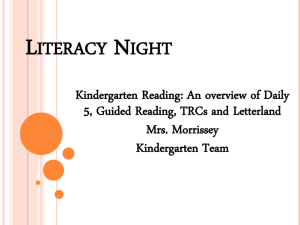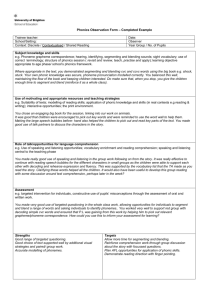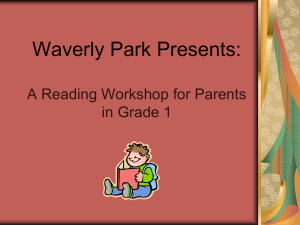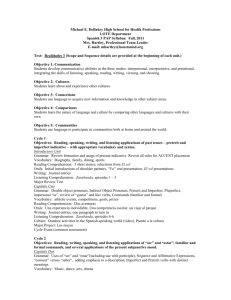KinderRoots Reading Workshop
advertisement
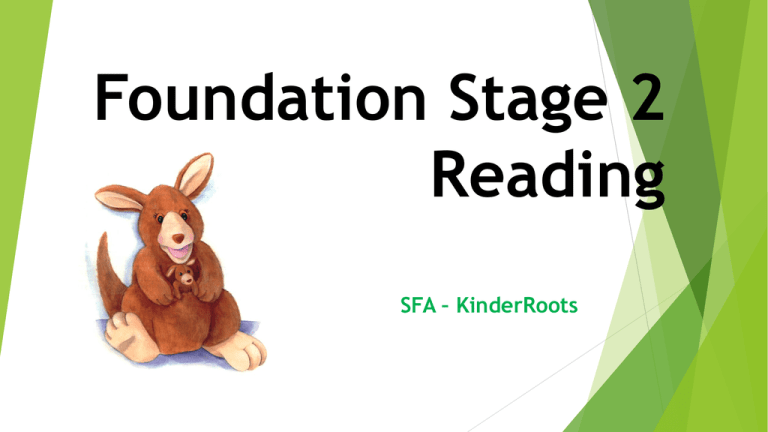
Foundation Stage 2 Reading SFA – KinderRoots Skills needs for reading Oral language development Concept of print Good listening skills Listening comprehension Phonics and words skills In Foundation Stage the main strategy for learning how to read words is Phonics abcd ef g h I j kl m n op qr s t u vw xyz As the children learn the letter/sound correspondences they also learn how to blend and segment Blending Segmenting c-a-t dog h-o-p kip f-r-o-g jump Last week the children did a Phonic Assessment with Mrs Phillips They’re Ready to start KinderRoots!!!! The main character in the first book is … Sad Sam In order to read the KinderRoots books the children will need to tackle 3 things Green words – means go! – Stretch and Read (sound out and blend) Red words – Say-Spell-Say (using letter names) Readles – a picture to help with a word Green words Let’s practice My turnYour turn Red words Let’s practice Say – Spell – Say My turn-Your turn Readles These are words that add context to the story. They are not green or red words. The picture is there to help the child remember the word. What will the KinderRoots week look like? Day What we will do in school What you will need to do at home Monday We will read a story or an information book to develop – • Oral language development • Concept of print • Good listening skills • Listening comprehension Listen to your child read his/her Oxford Reading Tree (from the previous weekend) What will the KinderRoots week look like? Day What we will do at school What you will need to do at home Tuesday We will introduce the new KinderRoots book Listen to your children read as much as they can – remember it will probably be their first day – support them as necessary We will teach Letter, Word and Story activities We will do Group reading Remember to read your part on each page Reading at home This is the adult’s part to read. This is the child’s part to read. What will the KinderRoots week look like? Day What we will do at school What you will need to do at school Wednesday We will continue with more Letter, Word and Story activities – developing children’s confidence Listen to your child read Remember to read your part on each page The children will read with a partner Celebration – 2 children will read their favourite page(s) from their book Maybe read the practice page today Practice page These are the green words – remember to stretch and read. These are the red the words – remember to sayspell-say. These are practice sentences. What will the KinderRoots week look like? Day What we will do at school What you will need to do at home Thursday We will continue with more Letter, Word and Story activities – developing children’s accuracy Listen to your child read The children will read with a partner The children will answer the comprehension questions with a partner – he/she will be encourage to speak in full sentences Remember to read your part on each page Discuss the comprehension questions (remind your child to answer in full sentences) they can also record their answers Comprehension questions “Yes, Dad is mad” “Yes, Matt is mad” “No, Sad Sam is not mad” What will the KinderRoots week look like? Day What we will do at school What you will need to do at home Friday We will continue with more Letter, Word and Story activities – developing children’s fluency Your child will bring their book home – they can keep it at home We will do Group reading We will write a sentence(s) about the story Celebration – 2 children will read their favourite page(s) from their book He/she will also bring an Oxford Reading Tree book that will have words for them to read – this may be a bit more difficult for them – so support and encourage them as necessary Any questions? Just remember Your child will now have an Oxford Reading Tree book to read at the weekend and on a Monday night Your child will get a KinderRoots book on a Tuesday The small print at the top of the page is for you to read The larger print at the bottom of the page is for your child to read Green words – Stretch and read Red words – Say-Spell-Say Research shows that those children who read regularly at home and school make good to outstanding progress

